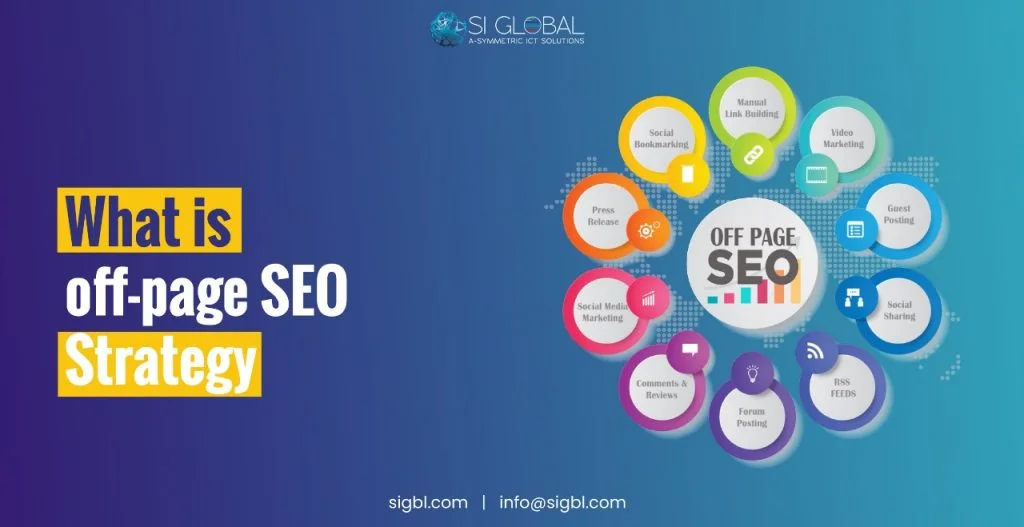Off-page SEO is one of the fundamental tenets of SEO, and many consider it even more important than on-page SEO.
Now, let’s dive into business, what it is and how it works.
“All of the efforts initiated by a brand off of their website in order to build authority and to increase the website’s rankings is off-page SEO”.
What actions someone can take to improve a website’s ranking outside of the website itself?
Well, there’s a lot to be done, and I will cover it more in-depth further on in the article, but to give you an idea, some of the basic components of off-page SEO include:
- Building Backlinks
- Including branded searches
- Increasing engagement and shares on social media
Why Is Off-Page SEO Important?
Backlink, in collaboration with Ahrefs, surveyed 11.8 million Google search engine results and found a powerful correlation between higher link authority and higher rankings. The top search result, on average, had 3.8x more backlinks than positions 2-10.
What are Backlinks?
All links driving traffic back to your website are backlinks. You can think of backlinks as tokens of authority from other websites. The quality of backlinks is also very important; the higher the authority of the website providing you with a backlink, the more authority you will gain from that link. 1 quality backlink is worth far more than getting 100 backlinks from websites with low Domain Authority. Google’s algorithm also makes it possible to check the link’s reference to your domain.
- Natural Backlinks:
These are links that are given to you without you having done anything at all. If another website likes your work and wants to quote you as an authority, they link to your article. Google highly regards such links because they indicate trust, thought leadership, and endorsement.
- Links Acquired Through Self-Promotion:
These links are acquired via digital marketing and outreach to different website owners. It often involves contacting other website owners and influencers to link to your website or promote your content in exchange for compensation.
These links also add to your website’s credibility and domain authority.
Strategic Guest Blogging:
Guest Blogging helps your off-page SEO strategy in a couple of different ways.
For starters, it can help your content reach a brand-new audience! Many people frequently peruse guest blogging platforms like Quora and Medium for answers. If the content you post there resonates with them, they may look you up and become valuable members of your audience, thus increasing your audience.
These guest posts also increase your chance of getting branded mentions. In your new-found audience, plenty of other blog writers will more than happily mention your brand because of the high value you are providing!
Lastly, you can always add backlinks to your website within these guest posts. This is off-page SEO for your website as it’s easier for people to click on a link leading them to your website than looking you up.
Social Media:
Social media is one of the biggest resources to help build your website’s authority. Instagram alone has an estimated 2.4 billion active users. The sheer magnitude of such a large audience should clarify that there is so much traffic you can direct toward your website from this platform.
However, it would help if you kept in mind that there is also a lot of competition due to this massive audience. There are many creators on social media, and to create a loyal audience, your content needs to be unique, valuable, and geared towards your niche.
If these requirements are met, your social media can act as a wonderful top hat for your business’s sales funnel, generating warm traffic to your website!
Broken Link Building:
Broken link building is the practice of replacing broken 404 links with links to a working website.
What does that have to do with your website?
When creating new blogs to improve on-page SEO, you need to build authority by reaching out to other authoritative websites to share or link your article to generate traffic.
When you find a website related to your niche from which you want a link, you can browse its links and find broken links using tools like Semrush or Check My Links.
You can then create comprehensive content to replace that broken link. Rather than begging for a share, this is more of an equal trade, as you also provide some value.
SEO has changed a lot over the years, but some fundamentals are still the same! One of the main things in this is a powerful off-page strategy.
To stay ahead of your competitors, contact us for our off-page SEO services!


